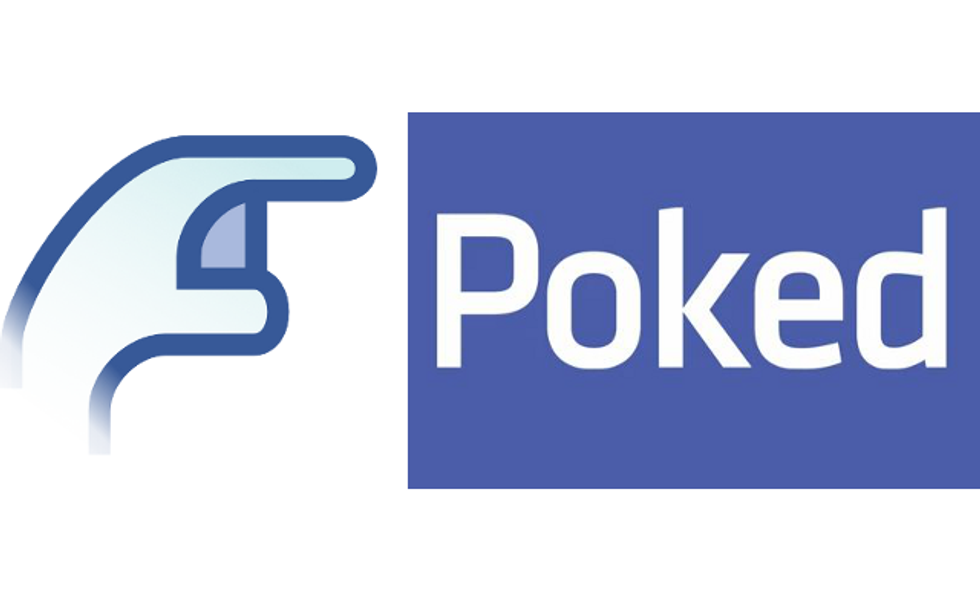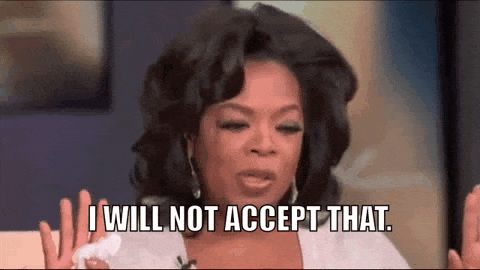For thousands of years, people have been eating together. Thus, society has established a set of guidelines as to which behaviors are socially acceptable at a table and which are not. This is called etiquette.
However, in the grand scheme of things, social media is pretty much brand new, and people are just figuring out how to conduct themselves online. I have developed the word ‘Internetiquette,’ which is the combination of ‘Internet’ and ‘etiquette,’ because I think that people are in need of some guidelines. I have chosen to break it down into three categories: Facebook, Instagram, and Snapchat. So, here it goes.
Facebook:
Facebook has really made a comeback since I’ve been in college. It’s an incredibly useful tool. That said, I’ve been reminded of all of the little things that people do on Facebook that just drive me crazy. Here they are, and here's what you can do to fix them.
Profile Basics:
Keep your profile up to date. If you are in college, it should not say that you still attend your high school.
Update your profile picture regularly.
You should be in your profile picture. No exceptions. It should not be a cartoon character or a picture of just your kids. That’s what cover photos are for.
It is okay to have a private Facebook profile.
Posts and Shares:
It is not okay to ever post or share anything with a "Minion."
You should not share more things than you post. The ratio of original posts to shared posts should at least be 50/50.
Pictures of food are rarely acceptable. It better be pretty.
It is okay to post something controversial, but expect controversy to come from it. Don’t act surprised when someone comments because they disagree with you.
Never post in all caps.
Do not just check in somewhere. Take a photo or write something about where you are.
Friend Requests:
There is nothing wrong with sending a friend request to someone you want to get to know.
If someone sends you a friend request, and you don’t want to accept it, it is okay to let it sit there. You neither have to accept it nor deny it.
Poking and Game Invites:
You should only poke your close friends as a joke. Don’t poke someone because you think they’re cute.
Stop inviting people to play Facebook games. I don’t care if you need coins for your fantasy world. Do something productive with your life.
Facebook Messenger:
Unlike Direct Messaging, it is okay to message people on Facebook.
If you’re messaging someone on Facebook for two or more days, just ask for their phone number.
Tags:
Do not tag people in photos without asking them first, if you feel they may not approve of it.
Do not tag someone in a photo that they are not in.
It is okay to un-tag yourself in a photo that you don’t like.
Instagram:
Instagram is, by far, my favorite social media platform. I enjoy the versatility, and appreciate the fact that it is easy to make of it what you wish. I posted my first Instragram 113 weeks ago, so I’ve had a couple of years to learn what to do and what not to do when it comes to posting. My Instagram style has developed and changed, as I have, throughout the years. I’ve certainly made some Instagram mistakes, but I’ve learned from them, and I am eager to share them with you, so you don’t make the same mistakes that many people have.
Posting Basics:
It is okay to post twice in one day (occasionally).
There are very few posts that are good enough to go caption-less.
Captions should capture who you are as a person and the spirit of the photo. Stay true to yourself.
A caption does not have to be funny or clever to be good.
Dealing With Unfollowers:
It is okay to have the unfollower app.
It is okay to unfollow someone who unfollows you.
It is not okay to unfollow someone you see everyday. It makes for awkward encounters.
Bios:
You should have a bio. Never leave this valuable space blank.
Your bio should not include a cliché quote, but if it does, put it in quotations.
Emojis are acceptable to have in your bio, but they should be used sparingly and should not be used to convey your relationship status.
It is okay to put your sorority / fraternity letters in your bio. Take pride in what you’re involved in!
Following People You Don’t Know:
It is okay to follow someone you don’t know personally.
It is okay to like someone’s Instagram post if you don’t know them, but you know someone in the post. (Celebrity posts are exempt from this rule).
It is not okay to comment on someone’s Instagram post unless you know them personally. (Celebrity posts are exempt from this rule).
Should you accidentally like someone’s post from let’s say, 58 weeks ago, don’t unlike it. Forget about it and move on. The person whose photo you liked will probably be very flattered.
Private Accounts:
Private accounts are annoying. I’ll leave it at that.
Don’t follow someone with a private account, and then unfollow them once you see their posts.
If you do have a private account, accept follower requests promptly.
Direct Messaging:
Direct Messaging on Instagram should be used as a joke between close friends only. Never DM someone if you think they are attractive. Find another way to get in contact with them.
Bathroom Selfies: (It is sad that this gets its own category, but unfortunately, far too many exist)
It is never okay to post a selfie taken in the mirror of a public restroom, or any restroom for that matter. Let’s avoid any pictures in restrooms.
Snapchat:
Snapchat is amazing. I love it. I feel like people have a pretty good grasp as to how to conduct oneself on Snapchat, but there are still a few rules that get broken from time to time.
Adding People:
Adding someone on Snapchat is a great way to tell them that you are interested in what they are doing, and that you would like to get to know them better.
No one way of adding someone is better than another. Username, contact, Snapcode, and ‘Add Nearby’ are all acceptable ways to add people.
You can leave the ghost in your Snapcode white, but if you opt to use pictures they must be pictures of you and only you—unless you and your friend share a Snapchat, which is unlikely.
Opening Snapchats:
If you are not in a place to reply to a Snapchat—let’s say, a movie theater, perhaps—leave it sit there unopened, and look at it at a time when you can reply.
Do not feel obligated to reply to what you feel may be a mass-Snapchat (one that someone sent to nearly everyone on their contact list).
If a Snapchat is sent to you, and only you, like a personalized one, it is polite to respond. Someone thought of you, and that should always be acknowledged positively.
Snapchat Stories:
Your Snapchat Story should not exceed 100 seconds of video.
Your Snapchat Story should not have more than 10 pictures at a time.
It is okay to comment on someone’s Snapchat Story when you see them in person. For instance, “Yeah I saw that concert on your Snapchat Story on Friday. It looked really cool!”
We get it college-aged students, you drink, but if your Snapchat Story is only used on the weekends to show everyone how high your alcohol tolerance is, I’m silently judging you.
You don’t have to watch everyone’s story.
It is okay to screenshot someone’s story if you are in it, or if you really like the picture.
Never screenshot someone’s Snapchat Story to use as blackmail.
To close, this summary of Internetiquette is surely not comprehensive given all of the social media platforms out there, but the rules are adaptable. We are all in this new world of social media, so don't let this article scare you. Do your thing and post, but just keep your manners in mind. I've made social media mistakes, you probably have, too. Let's learn from our experiences! In short, present yourself online in a way that you’re proud of.































